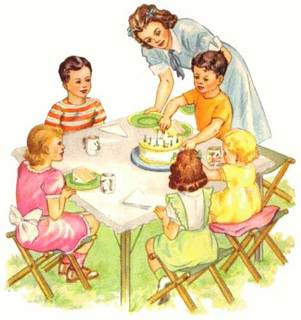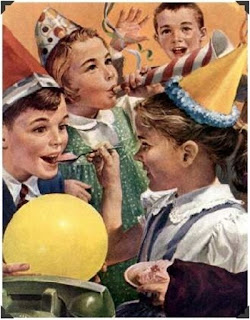

Birthday is the name given to the date of the anniversary of the day of a person's birth. People in many cultures celebrate this anniversary. In some languages, the word for birthday literally translates as "anniversary". Birthdays are traditionally marked by celebrations including a birthday party or, in some particular cases, a right of transition
Birthday cake
The Birthday Cake is traditionally highly decorated, and typically covered with little candles when presented, the number of candles signifying the age of the celebrant. The person whose birthday it is may make a silent wish and then blow out the candles. After that, the person can open their presents. It is also common for the person celebrating their birthday to cut the initial piece of the cake as a newlywed couple might with a wedding cake.
Birthday cakes date back as far as the Middle Ages when the English would conceal symbolic items such as gold coins, rings and thimbles inside their cakes. Each item was associated with a prediction. For example, a person finding a gold coin in a birthday cake would supposedly become wealthy; a person discovering a thimble would never marry.
Sometimes special candles are substituted for the many individual candles in the shape of a numeral. For example, on the fifth birthday, there may be one candle on the cake in the shape of the numeral five, and on the fiftieth birthday there may be two candles on the cake, one in the shape of the numeral five followed by the other in the shape of the number zero.
In addition to parties, it is common for people to receive gifts on their birthdays or suprise parties. However, sometimes it is expected of the person celebrating their birthday to treat their party guests instead; this varies depending on the local culture and may involve party gifts or other gestures.
In most English-speaking countries it is traditional to sing the song Happy Birthday To You to the honored person celebrating a birthday. Happy Birthday songs are common worldwide. Similar songs exist in other languages such as "Zhu ni sheng ri kuai le" in Mandarin Chinese, "Lang zal hij/zij leven" in Dutch, "Õnne soovime Sul" in Estonian, "Zum Geburtstag Viel Glück" in German, "Nα ζήσεις και χρόνια πολλά " in Greek, "Que los cumplas feliz" or "Feliz cumpleaños a ti" in Spanish, "Parabéns a você" in Portuguese, "Maligayang Bati" in Filipino, "Sto lat" in Polish, "Lá Bhreithe Shona Duit" in Irish, "Ja må du leva" or "Med en enkel tulipan" in Swedish, "Joyeux Anniversaire" or "Bonne Fête" in French, "Tanti Auguri a te" in Italian and "Iyi ki dogdun, Mutlu Yillar Sana" in Turkish. “Tavalodet Mobarak” In Iran. This song is a common greeting used on birthdays, along with greeting cards and verbal greetings with messages such as "I wish you a Happy Birthday" or "Happy Birthday." In Denmark, aside from cards and songs, the Danish flag is often raised and used as decorations at birthday parties.
(http://en.wikipedia.org/wiki/Birthday)

No comments:
Post a Comment